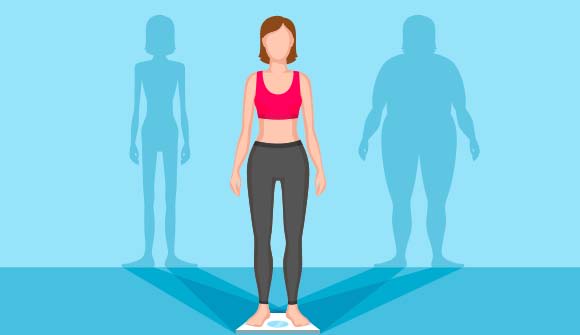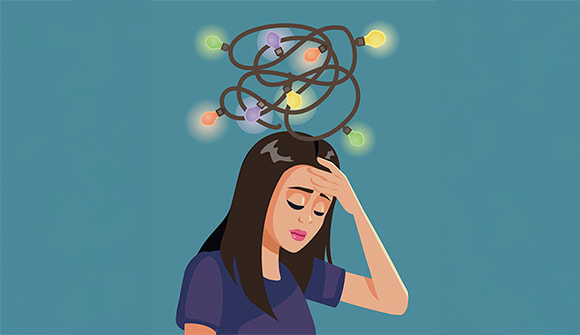Starving for control
The pandemic’s rise of eating disorders.
Article Date:

When the pandemic hit and the world shut down in 2020, Alice Merryweather, a U.S. Olympic skier, felt overwhelmed. With competitions canceled and college courses remote, her focus became losing weight. She’d “win” against the scale.
A growling stomach was a good sign, Merryweather revealed in interviews, because she thought feeling hungry meant she was strong, powerful and could push through pain. In her mind, she had control.
Eventually diagnosed with anorexia nervosa, an eating disorder characterized by low body weight and a fear of gaining weight, Merryweather received inpatient treatment.
“These disorders negatively impact physical and mental health and psychosocial functioning,” said Stefanie Paliatsos, PhD, a licensed clinical psychologist with Baptist Behavioral Health. “Most eating disorders involve an unhealthy relationship with food with too much focus much on weight, appearance and body shape. They can affect children, adolescents and adults.”
The three most common eating disorders are:
- Anorexia nervosa: engaging in food restriction, fasting or excessive exercise; having distorted body image and a fear of gaining weight, and sometimes purging
- Bulimia nervosa: eating a sizeable amount of food in a limited time period followed by excessive exercise, self-induced vomiting or laxative abuse
- Binge-eating disorder: rapidly eating large amounts – sometimes secretively – until feeling uncomfortably full and often guilty afterward, without engaging in purging behaviors
Individuals with an eating disorder may also struggle with depression, anxiety, obsessive-compulsive disorder (OCD), personality disorders and other addictive behaviors.
Constraint rules
Multiple factors can contribute to the development of an eating disorder, and control may be one component. For some, it’s a way to cope with stress when they don’t have healthy outlets. When things seem out of their hands, they may turn to manipulating their weight with food restriction or purging behaviors, Dr. Paliatsos explained.
“Some people develop a mindset, especially with anorexia, that they’re in control by not letting themselves eat. And if they do, they re-exert control with restriction or purging behaviors. This backfires because the eating disorder ends up controlling them.”
Cases rising
The biggest impact nationally was an increase in anorexia nervosa in adolescents, especially during the first year of the pandemic. A study in the International Journal for Eating Disorders found the number of hospital admissions for children and adolescents with eating disorders more than doubled by early 2021.
“Having no routine, significant disruptions in their lives, increased use of social media with unrealistic depictions of body shape, and prior healthy ways of coping taken away, resulted in feeling a loss of control,” Dr. Paliatsos said. “Food and weight are what some adolescents turned to in an effort to get it back. Without access to a gym or normal activities, many reverted to unhealthy approaches to lose weight.”
Take action
It’s important for family to step in, even if a loved one resists. Parents, siblings and friends should look for signs like:
- Unhealthy or rapid weight loss
- Restriction of types of food or quantity
- Refusal to eat in front of others
- Negative comments about weight
- Increase in depression, irritability or anxiety
When it comes to kids and teens, try to keep communication open. Additionally, parents should educate themselves on how to respond to eating disordered thoughts and behaviors, and try to limit excessive use of a scale, social media and comparison to others.
“Parents who are worried about their child’s eating habits should bring him or her to their pediatrician for a weight check and blood work for potential malnutrition or electrolyte imbalances. For individuals of any age who are engaging in restrictive eating or purging, the priority is treating medical and nutritional issues first. That is followed by addressing the thoughts and emotions that lead to their behaviors through the support of mental health professionals specializing in eating disorders and guidance of nutritionists with this expertise,” Dr. Paliatsos said.
If you or your loved one needs support for an eating disorder, Baptist Behavioral Health and Wolfson Children's Behavioral Health are ready to help. Call 904.376.3800 for assistance scheduling with a mental health provider.



